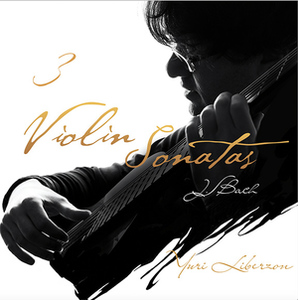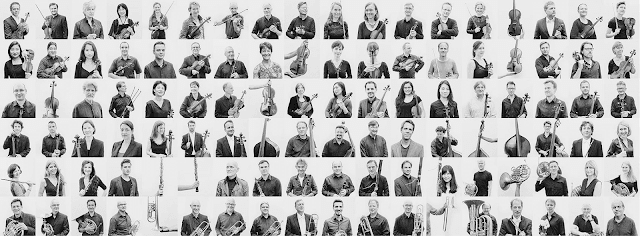 |
| Verdi: La traviata - Opera Holland Park 2018 (Photo Robert Workman) |
Socially distanced opera is expensive and very much about space, for the audience members and for the artists, which mean reconfiguring existing performing spaces or taking a leap of imagination. Opera Holland Park's season, which opens on 1 June 2021 looks deceptively normal, but behind it lies considerable work. Taking advantage of the space available, both the auditorium and the stage are being re-configured under the iconic canopy, with the company working with the designer Takis on the project.. The seating is configurable, in groups, and this will mean more space for everyone, but fewer audience members. Capacity will be less than half the theatre's usual (400 as opposed to 1000), as I said socially distance opera is expensive.
Musically, the season has much to offer, with three new productions, a revival and some novelties, diverse casts, plenty of young artists and of the four productions, two are conducted by women and two are directed by women. Mozart's The Marriage of Figaro, will be conducted by George Jackson [Jackson conducted some performances in 2018 and it is nice to see him getting his own new production] and directed by Oliver Platt, with Julien van Mellaerts and Nardus Williams as the Count and Countess, Elizabeth Karani as Susanna, Ross Ramgobin as Figaro and Samantha Price as Cherubino. This year's rarity is Mascagni's L'amico Fritz, his best known opera after Cavalleria Rusticana, but one which does not get much of an outing in the UK. Beatrice Venezi conducts, Adele Thomas directs, with cast including Kiandra Howarth, Paul Carey Jones, Kezia Bienek, Themba Mvula and Rose Stachniewska. The final new production is Janacek's The Cunning Little Vixen, directed by Stephen Barlow and conducted by Jessica Cottis, with Jennifer France, Harriet Eyley, Julia Sporsen, Grant Doyle, Ann Taylor, Charne Rochford, John Savournin, and Chuma Sieja.
 |
Verdi: La Traviata - Alison Langer, Stephen Aviss
Opera Holland Park 2018 (Photo Robert Workman) |
Each year, Opera Holland Park presents a young artists performance, giving young singers the chance to perform in the leading roles in one of the season's productions. This year it is
The Marriage of Figaro and because of the theatre's reduced capaticy there will be four Young Artists performances, two for public booking and two schools matinees. The Young Artists performance will be conducted by Lada Valesova and directed by Rebecca Meltzer, with Jacob Philips, Sian Dicker, Charlotte Bowden, Jolyon Loy, Charlotte Badham, Hannah Bennett, Alex Jones, and Guy Withers.
The revival is Rodula Gaitanou's lovely 2018 production of Verdi's La Traviata, which will be conducted by Matthew Kofi Waldren with Lauren Fagan and Alison Langer sharing the title role, plus Matteo Desole and Stephen Aviss sharing the role of Alfredo, and Stephen Gadd as Germont. Fagan, Desole and Gadd are returning to roles they created in 2018 [see my review], whilst Langer and Aviss made quite an impression in the Young Artists performance [see my review].
Despite a 60% reduction in capacity, Opera Holland Park has kept its annual percentage of free and accessible tickets. This year also sees the introduction of a programme of four Discovery Matinees. These performances specifically welcome people who want to try opera out for the first time in a relaxed environment, and those who love opera but find the normal theatre-going experience inaccessible.
 |
| Artists impression of the re-configured theatre at Opera Holland Park |
There are a couple of extra novelties. Opera Holland Park is joining forces with Charles Court Opera to present Gilbert and Sullivan's The Pirates of Penzance, directed by John Savournin (who also sings the role of the Pirate King), conducted by David Eaton, with Richard Burkhard, Yvonne Howard, Daisy Brown, Frederick Long, Peter Kirk, Trevor Eliot Bowes and Alys Roberts. Whilst at the end of the season, British Youth Opera will be bringing their Summer 2021 programme to the theatre, thus giving the youg singers valuable stage experience at a time when performances indoors are still in doubt.
Full details from the Opera Holland Park website.


































%20Ali%20Wright.jpg)

%20Ali%20Wright.jpg)





